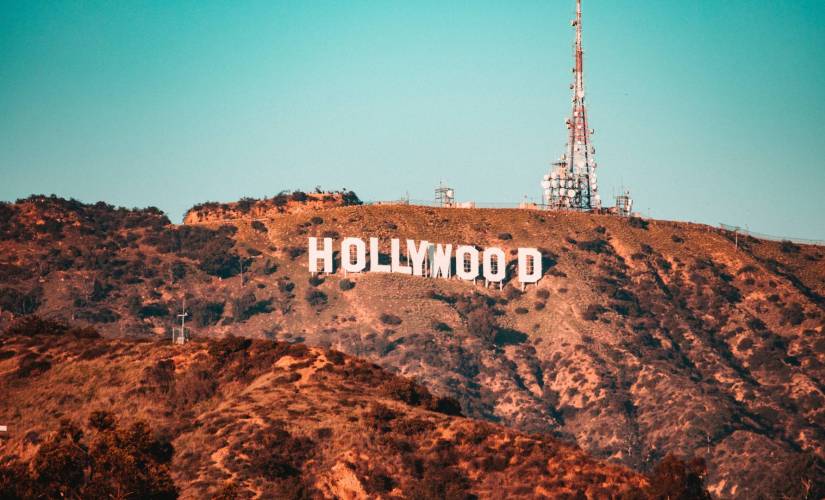Technology and innovation are nothing new to the entertainment business. Hollywood has always been at the forefront of the use of innovative techniques and technologies to create engaging media, from the advent of sound to the development of computer-generated imagery. However, the recent boom in AI has raised alarm bells among working performers who worry that their jobs are at risk from new technologies. The effects of AI on the entertainment industry and the actors’ reactions to them will be discussed in this article.
The field of entertainment has seen major AI advancements in recent years. Images, videos, and even written text can now be generated by AI algorithms that look and sound almost as good as anything made by a human. Some movies and TV shows have already made use of this technology to make the actors look younger, such as The Mandalorian and The Irishman.
Synthetic voices and faces are also being developed with the help of AI. DALL-E, an artificial intelligence program, can create pictures of inanimate objects, and GPT-3 can write text that sounds human. All-new characters can be made with these tools, or actors can be cast in specific roles.
Actors and performers are worried about the increasing prevalence of AI in the entertainment industry. They worry that their jobs could be automated away and become obsolete. This is a valid concern because there are currently available artificial intelligence-based tools capable of producing photo- and text-realistic outputs. One well-known AI-based chatbot that can simulate human conversation is ChatGPT.
The use of their digital likenesses has also raised concerns among actors. The development of deepfake technology has allowed for the production of fake videos and photographs of nonexistent individuals. This tech could be used to produce maliciously misleading videos featuring actors.
Actors in Hollywood have gone on strike over their fears of being replaced by artificial intelligence. The WGA has been joined in their demand for AI regulations to protect writers and their works by the Screen Actors Guild-American Federation of Television and Radio Artists (SAG-AFTRA).
More than two months have passed since the strike began, and neither side is willing to budge. The Writers Guild of America and the Screen Actors Guild have made it clear that they do not want their members’ contractually protected works to be used in the training of artificial intelligence.
The Alliance of Motion Picture and Television Producers, the trade group representing Hollywood studios, has offered actors a “groundbreaking AI proposal” to safeguard their digital likenesses. This proposal includes a demand for actors’ approval before any digital replicas or alterations of their performances can be made. SAG-AFTRA, however, has rejected this proposal on the grounds that it does not go far enough to protect the rights of actors.
Hollywood’s directors’ union, the Director’s Guild of America (DGA), has successfully negotiated AI safeguards into its contract. According to the DGA’s official position, “duties performed by DGA members must be assigned to a person,” and “generative artificial intelligence does not constitute a person.” This safeguard prevents the use of AI-based tools that could otherwise replace board members.
Some artists in the entertainment industry have taken legal action against AI. Sarah Silverman, a comedian, and two authors have sued OpenAI and Facebook parent company Meta for copyright infringement.
Legal action has been taken against both defendants on the grounds that they illegally copied and distributed summaries of the plaintiffs’ books. This legal battle illustrates the growing anxiety among artists about the possibility of their work being copied and remixed by software powered by artificial intelligence.
Hollywood’s embrace of AI is a trend that’s not going away anytime soon. Tools based on artificial intelligence (AI) are already widely used in the entertainment industry, and their prevalence is only expected to grow as technology advances. But that doesn’t mean acting is going away any time soon.
Instead, performers will need to adjust to the new realities of the business. They may need to acquire new abilities, such as the ability to use tools powered by AI, in order to maintain their relevance. It’s possible they’ll also have to work out more favorable terms for the use of their digital likenesses in contracts.
In conclusion, actors and entertainers are worried that their jobs will be automated away due to the proliferation of AI in the entertainment industry. But that doesn’t mean acting is going away any time soon. Instead, they need to adjust to the new realities of their field and work harder to secure favorable contractual protections for themselves.
As artists fight to prevent the unauthorized use of their work, the legal fight against AI-based tools is likely to continue. Tools based on artificial intelligence (AI) are already widely used in the entertainment industry, and their prevalence is only expected to grow as technology advances. Nonetheless, this won’t make the need for actors and performers obsolete. Instead, they need to accept the new Hollywood reality in the age of AI and make the necessary adjustments.
First reported on NBC News
Frequently Asked Questions
Q1: How has AI impacted the entertainment industry?
AI has brought significant advancements to the entertainment industry. It enables the creation of realistic images, videos, and text that rival human-made content. Movies and TV shows have used AI to make actors appear younger, and AI algorithms can generate synthetic voices and faces. These technologies have the potential to reshape the industry and create new possibilities for character creation and storytelling.
Q2: What concerns do actors have regarding AI in the entertainment industry?
Actors are concerned about the automation of their jobs and the potential obsolescence of their roles due to AI. The ability of AI to generate photo- and text-realistic outputs raises worries that their performances could be replicated or replaced by AI-generated content. The use of deepfake technology has also raised concerns about the unauthorized use of actors’ digital likenesses in misleading or malicious ways.
Q3: What actions have actors taken in response to AI in the industry?
Actors have gone on strike, demanding AI regulations to protect their rights and works. Organizations like the Writers Guild of America (WGA) and the Screen Actors Guild-American Federation of Television and Radio Artists (SAG-AFTRA) have joined forces to advocate for AI regulations. The negotiation between the industry trade group, the Alliance of Motion Picture and Television Producers, and the actors’ unions has been ongoing, with disputes over the protection of actors’ digital likenesses and their approval rights.
Q4: What safeguards have been negotiated for directors in relation to AI?
The Director’s Guild of America (DGA) has successfully negotiated safeguards into its contract to address AI concerns. The DGA stipulates that duties performed by its members must be assigned to a person, stating that “generative artificial intelligence does not constitute a person.” This provision helps prevent the replacement of directors with AI-based tools.
Q5: Are there legal battles concerning AI in the entertainment industry?
Yes, legal action has been taken by artists against companies involved in AI. Comedian Sarah Silverman and two authors have sued OpenAI and Facebook’s parent company, Meta, for copyright infringement. They allege that the defendants illegally copied and distributed summaries of their books, highlighting concerns about the unauthorized use and remixing of their work by AI-powered software.
Q6: How should actors adapt to the growing presence of AI in the industry?
Actors need to adjust to the new realities of the industry by acquiring new skills and adapting to the use of AI-powered tools. Embracing AI and understanding its applications can help actors remain relevant and navigate the changing landscape. Additionally, securing favorable contractual protections for the use of their digital likenesses is essential in safeguarding their rights and interests.
Q7: Will acting be replaced by AI in the entertainment industry?
While AI is transforming the industry, acting is not expected to be completely replaced. The human element, emotions, and creativity that actors bring to their performances are still highly valued. However, actors need to adapt and embrace the opportunities that AI brings, collaborating with technology to enhance storytelling and create innovative experiences.
Q8: What is the future outlook for AI in the entertainment industry?
AI’s role in the entertainment industry is expected to continue growing as technology advances. AI-powered tools are already widely used and are likely to become more prevalent. It will be crucial for artists to strike a balance between embracing AI’s potential and protecting their rights and creative works. The industry will continue to navigate the challenges and opportunities presented by AI in the pursuit of innovative and engaging entertainment experiences.
Featured Image Credit: Unsplash




